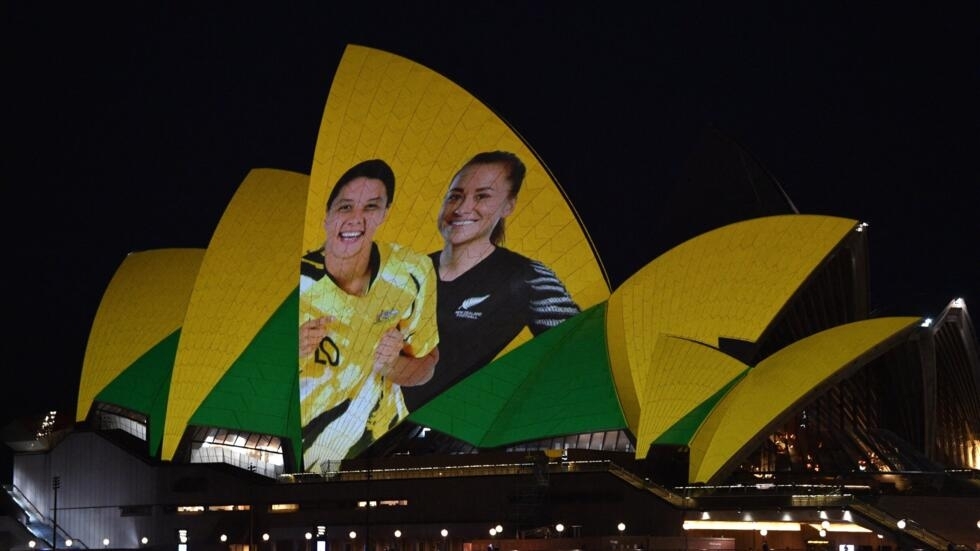Record crowds expected as Women's World Cup kicks off
Australia and New Zealand will open the ninth Women's World Cup co-hosted by the two nations on Thursday, despite a shooting near the Norwegian team hotel in New Zealand's largest city of Auckland that left three dead and six injured.
Issued on:

New Zealand's Football Ferns will open the tournament as planned at Eden Park in the city against Norway on Thursday at 7pm local time (0700 GMT), in what is likely to surpass the host nation's previous biggest crowd for an international football match.
Australia's Matildas will begin their campaign against the Republic of Ireland at 1000 GMT in front of a sellout crowd of around 70,000 fans at Stadium Australia in Sydney – a record attendance for a women’s football match in the country.
Women were banned from official facilities in England, the home of the game, until 1970, and female players faced similar discrimination in many other countries.
But the sport has achieved greater prominence in recent years, with large increases in women players and spectators globally.
Tracey Taylor, a professor of sports management at RMIT University in Melbourne, said many members of grassroots football clubs expected the tournament to have a transformative effect for participation in women’s sport in Australia.
"They say it’s such a game-changer for them in positioning the sport, not only globally, but also within the local community and raising awareness,” she said.
Still, conditions for women footballers still remain well behind those for men in many countries.
The Matildas released a video this week criticising the “disrespect” for the women’s game that forced teams to play on artificial pitches in the 2015 tournament and prize money that still lags behind the men’s World Cup.
Several participating nations, including tournament heavyweights England and Spain, have been in dispute with their administrators over working conditions and pay in recent months.
Demand down under
Players like talismanic striker Sam Kerr are household names in sport-mad Australia, with tickets for matches involving the home nation selling out months in advance.
"I'm sure that the whole of Australia will be behind the team tonight," Prime Minister Anthony Albanese said in a radio interview with state broadcaster ABC on Thursday.
"I think that Australians are really realising just how big this event is."
In New Zealand, whose sporting culture is dominated by rugby union and its famous All Blacks, demand has been lower, with tickets remaining for many fixtures.
Fatma Samoura, FIFA’s Secretary-General, said ticket sales had already exceeded the number sold for the last tournament in France, but sales in New Zealand had lagged behind its much larger neighbour.
“We know that Kiwis are late ticket purchasers when it comes to tournaments that are played on their shores,” she told a news conference in Auckland on Wednesday.
“We still have tickets available for some matches. So my only plea is don't wait until the last moment.”
New Zealand Sports Minister Grant Robertson on Wednesday urged people to purchase what he said were “limited” remaining tickets for the opening match.
“It’s a once-in-a-lifetime opportunity for many New Zealanders to experience a top-tier FIFA World Cup event,” he said.
(FRANCE 24 with Reuters)
Daily newsletterReceive essential international news every morning
Subscribe